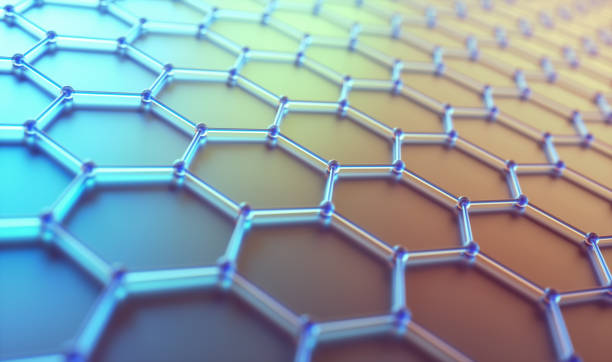What Is Graphene Used For? A Guide To The Mysterious Material Gaining Ground
Graphene — imagine a million sheets of carbon standing upright and overlapping each other. This amazing material is just one atom thick and is about 100 times stronger than steel, along with being flexible and transparent. Yes, it's a material that reaches the impossible. But how does it work in real-life applications? This article lists down a few applications and uses of graphene to help you understand its possibilities better.
Graphene Is a Revolutionary Material That Can Be Used in Many Different Ways. Here Are Five of Them:
1. Graphene is incredibly strong and light, which makes it great for use in electronic devices, including smartphones and computers. It can also be used to create even smaller electronic components, which will make our devices faster and more efficient.
2. Graphene is an excellent conductor of electricity and heat, making it useful in electronics as well as thermoelectric devices (which are used to convert heat into electricity).
3. Graphene is used in batteries to increase their capacity and extend their lifespan. This means that your phone could last longer on a single charge or your laptop could run off battery power for hours instead of minutes at a time!
4. Graphene could help us make better solar panels—it's an excellent conductor of both light and electricity, so it would improve the efficiency of solar cells by capturing more energy from the sun and transferring it into usable electricity for our homes or businesses!
5. Graphene films can be made very thin (just one atom thick!), which allows them to work as transparent conductors of electricity —this could make solar cells more efficient and reduce the amount of material needed to create them.
Graphene is a special material that has been used in different applications. There are five main applications of graphene:
1. Electronics and Sensors- Graphene is one of the thinnest materials ever discovered. It conducts electricity better than copper, which means it can be used for electronic devices such as computers, phones, and televisions. Graphene also has the ability to absorb light and sound waves, making it a useful material for sensors like those found in cameras or microphones.
2. Batteries - Graphene can be used to make batteries that can store more energy than traditional lithium-ion (Li-Ion) batteries. These batteries could be used in electric cars or other devices that need to run on electric power instead of gas or diesel fuel.
3. Water Purification - Graphene has been proven to remove contaminants from water such as lead and mercury while also keeping the water safe for drinking without any side effects like corrosion of metal pipes or buildup of salt deposits in household plumbing systems; this makes it an ideal material for water filtration systems that are used by people living near oil refineries or chemical plants where there may be high levels of smog in the atmosphere which would otherwise cause health problems if inhaled.
4. In Solar Panels- Researchers have discovered that when layers of graphene are stacked together, they create a more efficient solar panel than traditional silicon-based panels do—and this means we'll be able to generate more power from our solar panels in the future!
5. In Medicine - Graphene could help us find better treatments for cancer because it allows us to deliver drugs directly into tumors without harming healthy tissue around them (which is what happens when chemotherapy is administered). This means we could have fewer side effects from treatment—and better results!
The applications of graphene in the switch industry, while recent, are already beginning to show a promising future. It may still be years into the future before graphene is replacing silicon as one of the most prominent materials used in today's electronics, but the ease at which uses and applications can be developed for this material is startling. Highly scalable and flexible, graphene manufacturers in India will likely play a major role in some of the biggest technological leaps that we see just over the horizon.



Comments
Post a Comment